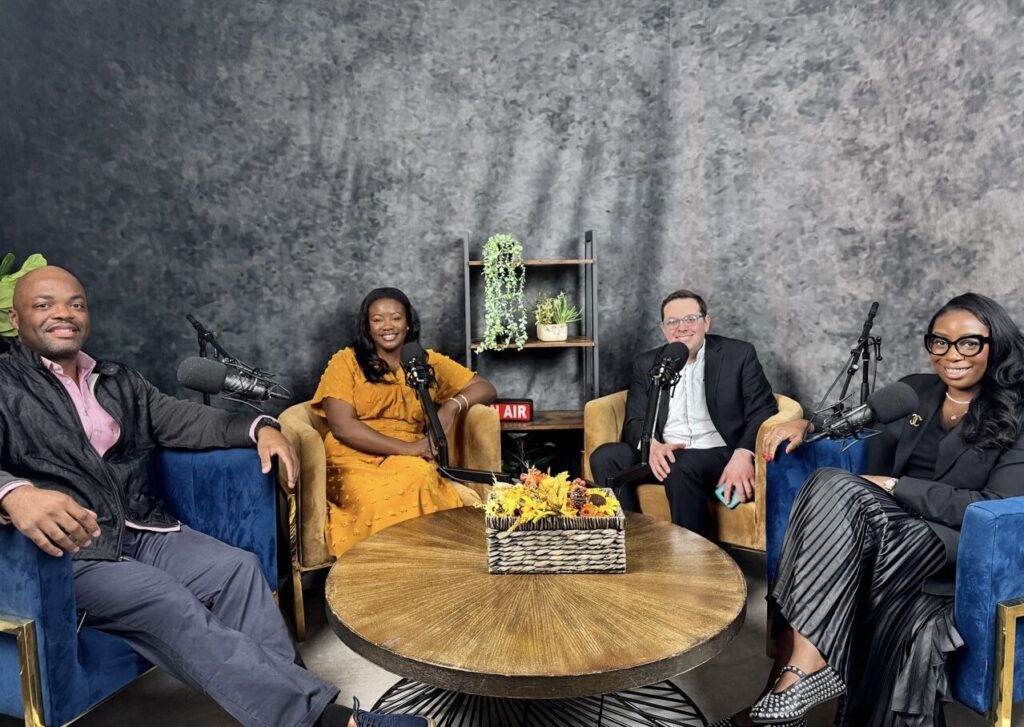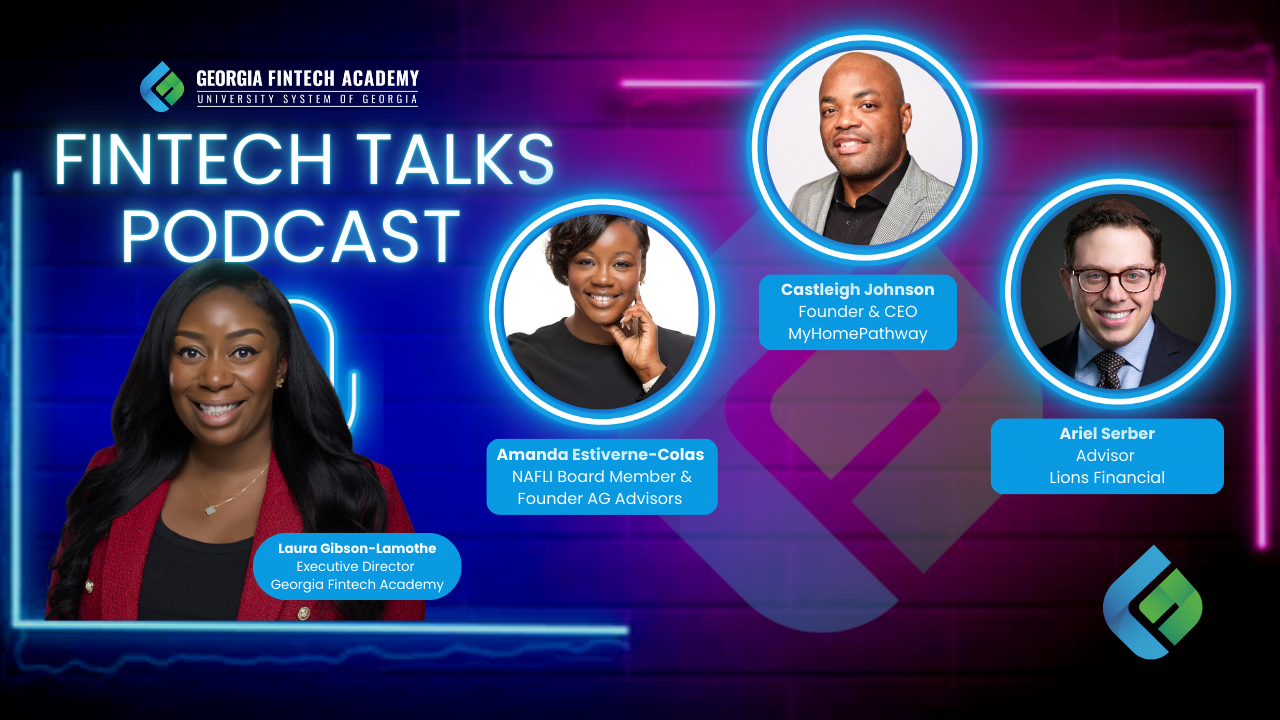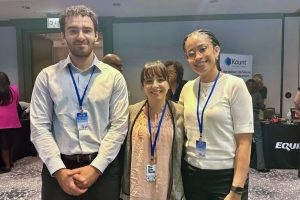🎙️ Fintech Talks “Rewind”: Closing the Gap – Financial Literacy and Inclusion in the Digital Economy
Welcome to “Fintech Talks Rewind”! Each episode of Fintech Talks is packed with insights, real-world lessons, and fresh perspectives from industry leaders shaping the future of financial services and fintech. In this quick “Rewind”, we’re pulling out the key highlights, memorable moments, and actionable takeaways from our latest conversation. Let’s dive in.
April is Financial Literacy and Inclusion Month — a time to reflect on the progress we’ve made and the work that still lies ahead to build a more equitable financial future. During New York Fintech Week, I had the privilege of hosting a special Fintech Talks podcast episode titled “Closing the Gap: The Next Frontier of Financial Literacy and Inclusion in the Digital Economy.” Bringing together leaders from across the financial services and fintech ecosystem, we explored the ongoing challenges — and promising innovations — shaping the future of access, education, and trust in our industry. Joining me for this important conversation were: – Amanda Estiverne-Colas, Board Member of NAFLI (National Alliance for Financial Literacy and Inclusion) and Founder of AG Advisors – Castleigh Johnson, CEO & Founder of MyHomePathway – Ariel Serber, Advisor at Lions Financial. Together, we tackled the critical question: How do we truly close the financial inclusion gap in a digital-first, fast-evolving world?

The Power of Personal Experience
Each speaker’s passion for financial inclusion was deeply personal. “I grew up watching my family navigate financial decisions without the right tools or information,” shared Ariel Serber. “It made me want to figure out: how can we do this better?” Amanda Estiverne-Colas reflected on her own family’s journey as Haitian immigrants: “Financial empowerment starts with understanding your options. For many immigrants, that access isn’t easily available — you have to fight for it. That experience drives my passion for building more inclusive financial products today.” Similarly, Castleigh Johnson, born in Jamaica, emphasized the importance of understanding risk: “Access sits on the back of risk. If you don’t know how you’re being evaluated, how can you advocate for yourself? Financial literacy must connect to real outcomes — not just content for content’s sake.”
Embedding Financial Literacy: It’s Not a One-Size-Fits-All Solution
One of the key themes that emerged is that financial education must be embedded — not treated as an optional extra. At the Georgia Fintech Academy, we see firsthand that students are entering university with vastly different levels of financial knowledge. Addressing these gaps requires more than one-off workshops; it requires integrating financial literacy into every phase of education. Ariel pointed to research showing that a single semester-long financial literacy course could increase lifetime asset accumulation by over $100,000 — underscoring the generational impact of early financial education.
Technology’s Role in Expanding Access — and New Challenges
Innovation in fintech is opening doors:
- Earned wage access tools allow workers to access their paychecks faster.
- Embedded finance solutions simplify access to payments and savings tools.
- Mobile-first banking and digital identity solutions are reaching consumers who were historically excluded.
- Amanda cautioned, innovation must balance trust, safety, and compliance: “Fintech enables creative solutions — but consumers need education alongside access. Without that, the gap between access and real empowerment persists.”
- Meanwhile, Castleigh highlighted the rampant financial misinformation on social media, making it even harder for consumers to discern good advice from harmful content.
Rebuilding Trust in Financial Institutions
When asked about how to overcome distrust in financial services, the conversation turned candid. “There’s a reason certain communities don’t trust financial institutions,” said Castleigh. “It’s not just historical — it’s generational. From redlining to discrimination in lending, the scars are still fresh.” I emphasized the importance of pairing technology solutions with real education and human connection. “We can’t just tell communities to trust us — we have to consistently earn that trust, and that takes time, transparency, and action.”
What Gives Us Hope
Despite the challenges, everyone on the panel shared an optimistic outlook for the future:
- Real conversations are happening in communities, classrooms, and startups.
- Crusaders — founders, innovators, educators — are actively building better solutions.
- Technology, when paired with intentionality and empathy, can scale education, access, and financial freedom. Amanda shared: “I’m hopeful because people behind the scenes — product builders, developers, educators — are raising their voices and fighting for a more inclusive system.” Ariel shared: “It’s conversations like these that remind us: change starts with people, not platforms.”
At the Georgia Fintech Academy, we’re committed to continuing this work — connecting talent, technology, and opportunity to close the gap for future generations. Stay tuned for more conversations, collaborations, and action steps. And thank you to Ariel, Amanda, and Castleigh for lending their voices, leadership, and passion to this dialogue.
Listen in on the this podcast and let’s keep the conversation going! ApplePodcast https://podcasts.apple.com/us/podcast/fintech-talks-a-georgia-fintech-academy-podcast/id1503044509?i=1000705251156 or YouTube https://youtu.be/-wTgopIY03Q
#FinancialInclusion #FintechForGood #FinancialLiteracyMonth #FintechTalks #GeorgiaFintechAcademy #NextGenFinance #TrustAndTransparency #ClosingTheGap




